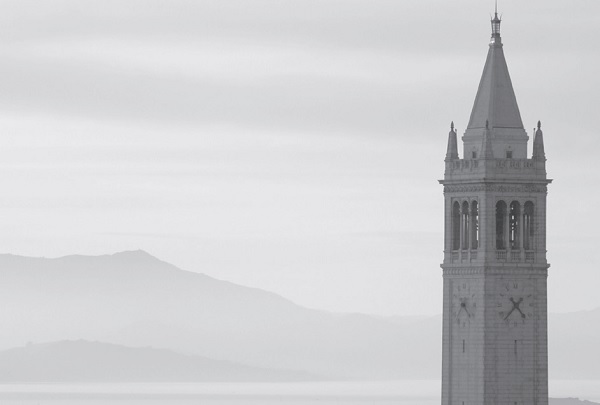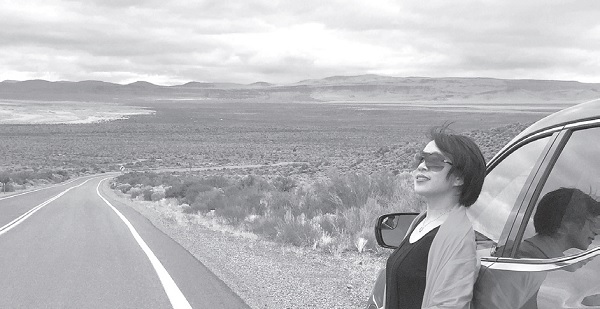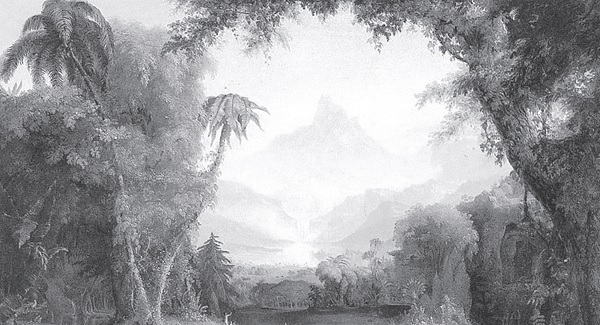Man’s ultimate “poetry and distance”
/ Meet God in the poetry of life /

▲The author Li Wenping is on the deck of the cruise ship "Jieke".
"Life is not only about the hustle and bustle in front of you, but also about poetry and distant fields." Not long ago, when this song came out, the hearts of the public moved. The term "poetry and distant fields" spread quickly, expressing the unspeakable fear in people's hearts. move. What does it mean? Is it really "poetry" and "distance"?
At least sometimes it is.
Get off the ship at the same place and arrive at a different shore
From May 22 to 29 this year (2016), I had a veritable "Poetry and Distance" trip, because I set out for poetry, on the Norwegian Cruise Line's "Breakaway" cruise ship Giving poetry lectures; and really going far away - first flying from the west coast of the Pacific to the east coast of the Atlantic, and then from the American mainland to the British Isles.
This "distant place" seems a bit dangerous, because the destination is Bermuda - the "Bermuda Triangle", the world-famous place where planes and ships mysteriously disappear. Although "Bermuda Island" is not the same as "Bermuda Triangle", before departure, some friends were still famous and joked with me. Those who believe in the Lord say, "Please say hello to Jesus for me. I don't behave very well, but I actually love Him!" Those who do not believe in the Lord say, "Oh, ah, you are brave enough!"
After boarding the "Freedom" cruise ship, I felt that the ship's name was well chosen and guided the mood of the passengers: getting rid of the boring and cumbersome daily life and arriving at a beautiful and happy distant place was truly the "Xiaoyao" cruise ship. When the ship arrived at its destination after a three-day journey, a joke emerged from my memory: a person with a very superior feeling got on the plane and had an economy class ticket, but he insisted on sitting in the first-class empty seat. The flight attendants tried their best to Persuasion was ineffective, so I had to ask the captain to take action. The captain asked kindly: "Where are you going?" The answer was: "New York." The captain then whispered something to the man, who immediately got up and hurried back to his original seat. The flight attendants were surprised. What did the captain whisper that was so effective? The captain said, "I said the first class flight goes to San Francisco, and the economy class flight goes to New York."
This is a joke that satirizes people's intelligence, but I found that this joke is quite reasonable on this cruise ship. Why do you say that?
Getting on the cruise ship is like entering a floating town on the Atlantic Ocean. There are all kinds of townspeople, but generally there are only two types of life in the town: one is to leave home, eat, drink and have fun; the other is to leave home, serve others, have fun, eat and drink.
But there is a group of strange people among them. They don’t pay much attention to the entertainment they paid for on board. They pass through all kinds of gambling slot machines and card tables. They practice spiritual practice and worship God together in the morning; they talk about poetry, painting and write together in the afternoon. They started to go to the ship's theater in the evening, but the program that focused on sensory stimulation seemed to be very stimulating to them. Many of them fell asleep and later stopped going at all, preferring to go in groups of two or three. , share, walk, etc. together. On the same ship, they seem to be seeing different scenery, enjoying different feasts, and arriving at different harbors.
I feel that this cruise ship is like a microcosm of the real world. In the same world, the love of Jesus Christ and the different responses to His love separate people’s journeys and destinations. Even if they disembark at the same place, they will not arrive at the same place. It’s also a different shore.
What is the other side between you and me? Or, what is "poetry and distance" between you and me?
So to be more specific, what is human "poetry and distance"?
Tencent data shows that WeChat users reached 549 million by the end of March 2015, covering 90% of smartphone users. From the popular stories on WeChat, we can get a glimpse of people's common "minds".
Not long ago, I received several push notifications sharing the same content: a model quit the fashion industry at the age of forty and returned to the countryside to work as a farm wife, planting crops and raising several children and dogs. The friend who shared it felt that the story was poetic and picturesque, and that this person's life was worthy of envy. I asked: If this peasant woman had not turned into a model, would you still be envious? The answer is: "Well, it seems not." So why is it that the life of a peasant woman who is also a peasant woman is not worthy of envy, but the life of a peasant woman turned into a model is worthy of envy?
Fundamentally, I think it is because peasant women who are originally peasant women often have to live like this. It is a last resort arranged by fate, that is, "living on"; while the life of a peasant woman turned into a model is a kind of active choice, which is a kind of love. The embodiment of freedom is the realization of dreams, so it is worthy of envy. It is "poetry and distance".

▲During April and May 2016, WeChat public accounts popularly pushed articles about a model who turned into a peasant woman.
"Poetry and Distance" touches people's heartstrings because it symbolizes a better dream and allows people to confront the "suffering in front of them" - the last resort of survival. The envy of this peasant woman who was formerly a model is not necessarily the envy of her life as a peasant woman, but the envy of the realization of her pastoral dream.
"Poetry and Distance" is so bewitching, so "traveling at your convenience" has become a common yearning. The freedom it contains makes people's eyes bright, and it seems that "traveling at your convenience" is really You can reach "Poetry and Distance". For the sake of that sense of freedom, some people really just leave—from work or from relationships. Unfortunately, they may not be able to reach "poetry and distance", but instead end up in doubly "living around". Because "poetry and distance" cannot be achieved superficially or through temporary ease. It requires people to make real efforts and have the necessary strength or conditions. However, these phenomena all show that a free and beautiful life (that is, "poetry and distance") is a common yearning for people.
There are also wonderful stories about the elderly, such as the 80-year-old grandma dancing ballroom, tumbling in the air and on the ground, scaring people to the point of being speechless, and then applauding and applauding desperately; such as the old peasant woman Moses who only learned to paint, and ended up becoming the "Times Magazine" 》The cover character was a great success. Why do we like legends like this? Because these elderly people dare to defy "reasonable" limitations, such as blood pressure, heart rate, bone mass, brain cell aging, etc., they show us what it means to live a dream - to have uninhibited freedom and dare to Pursue, dare to invest, make efforts, enjoy it, and achieve success. They touch our deepest respect for life and make us moved.

▲The old man’s performance on the field “shocked” the referees and the audience, and he received respect, screams and applause from the audience, and entered the semi-finals directly.

▲The dancing British 80-year-old man answered questions in the face of the referee’s questioning attitude when he took the stage.
And such poetry and distance can even appear in prison. The writer Yu Qiuyu mentioned in an article that he once went to a prison to give a lecture and wanted to visit a friend who was in prison. However, when he did not see him, he left a note: "You are busy on weekdays. Now you finally have the opportunity to learn a subject well." A great opportunity for a foreign language." A few years later, my friend was released from prison, full of energy, and brought out an English translation of 600,000 words, ready for publication.
It can be seen that poetry and distance are not necessarily far away, nor are they only in poetic and picturesque places. As long as you still have the freedom of choice in your heart and can devote yourself to your dreams, you can live a fulfilling and meaningful life even if there are environmental restrictions. This is close to the essence of poetry and distance, that is, walking on the road leading to poetry and distance. Whether you have poetry and distance, the environment is not the determining factor.
The Temporality of "Poetry and Distance"
However, a problem arises, because the poetry and distance that we wanted at the beginning may become new pretentiousness after arriving, such as marriage or immigration. Why did a place that once gave people the motivation to cross thousands of mountains and rivers become a popular waste of time, sighs, and even internal injuries?
And success. After the famous writer Jack London went through all kinds of hardships to gain recognition, he expressed what many people felt: the top of the mountain is actually not as good as imagined.
The most poetic people should be poets, but what do the suicides of some famous poets mean? Does it mean that the poetry that constitutes poetry in life does not have the energy to support life?
There are also prestigious schools. Many Chinese parents think that they are a special train for their children to go to "poetry and distance", or even "poetry and distance" itself. However, after arriving, many students are not full of vitality, but are depressed, anxious, and suffer from diseases. Heart disease. As one of the top public universities in the world, the University of California, Berkeley, has one of the top stress indexes among universities in the world. The landmark building on its campus, the 307-foot-tall bell tower, has installed special safety facilities because a student committed suicide there. To prevent more tragedies from happening.
And what about being famous? Being famous is often a sign of success. Many successful celebrities, especially those in the entertainment industry, seem to live a glorious and poetic life on the outside, but are inevitably filled with a sense of stagnation on the inside. Those who cannot bear it often turn to drugs or even give up on life.
Why do the things we strive for eventually go bad? Why do dreams turn into stubbornness? Is there any ultimate "poetry and distance" worth pursuing?

▲The Sather Bell Tower, a landmark building at the University of California, Berkeley, installed precautions after a student committed suicide here. (Photo: Tristan Harward, Source: Wikipedia)
The bud of poetic heart
Someone once asked me where poetry comes from. At this time, a picture often appears in my mind: under the sky, among the mountains, a little girl with two pigtails is playing on the hillside. From time to time, she is amazed by the ordinary and beautiful mountain flowers and the occasional wild berries. , the elegant white mist of the mountain stream, the setting clouds in the distance, the bluestones under your feet, and the chirping of various insects in your ears... It was a barren and remote place in Guizhou, with many shrubs and few trees; but for the little girl, it was full of all kinds of fun, and her life was so novel and interesting.
That little girl was me in childhood. In a place where culture, education and economy were far behind most of China, poetry had already taken root. The material poverty of being unable to eat even one apple a year has never concealed the inexplicable joy and touch brought by Shanfeng Liulan. That kind of emotion ripples gently between heaven and earth. As the seasons change calmly, it gradually merges into a kind of surge of life that needs to be expressed in my heart, which is poetry.
So, one afternoon in the second grade of elementary school, I sat on the linoleum roof built by my father, basking in the sun, and began to doodle poems. I have long forgotten what I wrote. It is certain that it will not be a poem. I only remember the tranquility, joy and satisfaction when I wrote it, and how the warm sunshine shone on my back and head. Hot, like my heart.
When a person's heart is full of poetry, no matter what his/her cultural level is, how much vocabulary he/she has mastered, whether he knows how to express it, what his material conditions are, or his/her age, his/her life will be rich and verdant. The quality of that moment was truly extraordinary, the quality of "poetry and distance".
So if you ask how poetry comes about, I can say from personal experience that it comes from the Creator. The Creator uses His poetic creation of nature to moisten things and silently evoke the poetry He has already given to people's hearts.
In the early 1990s, I had graduated from college and started working. I participated in the first Ai Qing Cup World Chinese Poetry Competition. The judges mistakenly won the Excellence Award. My proud father-in-law took the trophy for safekeeping. Moved and don't know where it was left. I don’t even remember what it was about, but I do remember some lines from the same period (probably from the poem), such as:
Death in the distance
The white swan sits silently on the moat where garbage floats
like a sad eulogy
Another example:
The living cast long shadows
The dead person closes his eyes
Pay silent tribute to the living
"Distant place" is also an image in my poem, but it is "dying". The heaviness of life eventually led to the end of my inner poetry and outer creation. I think that great literature is a profound reflection of real life, and life and society are already so miserable, why bother to use words to reproduce them? There is really no point in writing!
However, later I started to mention poetry again. After I got to know Jesus Christ, the lost poetic spirit somehow came back, along with my childhood wonder and joy for life. It was as if the doors and windows of a closed prison had been opened, and there was a refreshing convection. The air comes in an endless stream, so that even on very difficult days, as long as I can focus on Jesus, quiet and peaceful verses will flow out of my heart. But when I can't focus on Jesus, it's really painful.

▲Under the sky, among the mountains, is the hometown of the author Li Wenping. (Photography: Li Zhongping.)
poetic roots
So if you ask how poetry is produced, I can look at the poems I have written and say: Poetry comes from the source of life—God. In the quiet corner, I saw His smile, so in the luxury of breathing, the mystery of life enlightened me. I know that wherever the hand of God touches, good flowers bloom. This makes me feel at ease, and I feel that no matter good or bad, "How willing I am to walk in time with you by my side." (See my work "The Day the Lily Blooms")
This lost poetic heart made me understand that poetry can be short-lived, but if it has an eternal root, it can return and last. Today, poetry has even become one of my spiritual practices, helping me appreciate the poetry of life given by God.
Larry Crabb, best-selling author, psychologist, and spiritual director of the American Association of Christian Counselors, was hospitalized with an abdominal tumor. He stood in front of the hospital window and saw the Starbucks across the street. He thought about it, felt it was unfair, and complained to God. God said to him: "If I give you everything you want, but without me, do you want it?" He suddenly realized how terrible it would be if he had everything without God! In other words, without God Himself, where can there be any real "poetry and distance"? All arrivals and possessions are ultimately contentions.
During a trip, I received a call from a friend and said, "I just want to ask a 'small' question - what is the meaning of life?" When I had the opportunity to stop, I sent a photo of the road to answer her question. "Small" question: "The meaning of life is on the road." She thought I was joking, but actually I was telling the truth. We seek something because we have not yet obtained it; and when we enter the destination, we no longer seek it, but enjoy the process.
Meaning is such a thing. Once you enter meaning, you will naturally no longer seek it. I am now walking in the meaning of life—the source of human life, the reliance of life, and the refuge of life, which is God Himself, “for from Him and through Him and to Him are all things.” (Romans 11: 36a) So I no longer seek meaning, but walk on a path full of meaning and walk with Him.
This is not only true in daily life, but also in travel. I believe that nature is a temple built by God himself, and lingering in it is also a response to and worship of Him.

▲The author Li Wenping is on the road. She loves traveling and believes that life is a journey of mind, spirit and body. Walking with God "on the road" is the answer to "what is the meaning of life".
God’s poetic plan for human life
There are too many sufferings and tortures in the world that are killing poetry and distance, but if there is an eternal God for poetry and distance, what else can take away our poetry and distance?
And God’s original design for human life is to live in His abundance and enjoy Him and the grace and blessings He bestows with a grateful heart. That kind of life can be summed up in one word: "Garden of Eden." God has only one poetic plan for human life, but it has two poetic manifestations.
The first time was when the world was created. God, with his power, creativity and love, created something out of nothing and created a poetic living environment and pastoral life for mankind. At that time, God was man's parent, and it was a "family relationship" rather than a "list relationship" - he set out needs and asked God to satisfy them; nature was the home prepared by God for man, beautiful and rich, for man to enjoy and manage, and It is not plundering and trampling (how many people now enter the city, in fact, they ultimately want to return to the countryside, as if the blueprint at the time of creation remains in the human soul as a vague and unexplainable memory); at the same time, others are the objects of love, and Adam and Eve loved each other endlessly. Guess, rather than alienation, control or even hatred.
Unfortunately, the good times did not last long, and people lost their freedom by using their freedom of choice, so there was God’s second manifestation of man’s will, that is, the redemption of Jesus Christ.
A story needs to be mentioned here: an originally beautiful princess lost her beauty and freedom due to an ancient curse. If the princess wants to regain her identity and freedom, there must be a prince who loves her and is willing to take her place, even to the point of giving up her life. Only by losing his life can he get her back. And the prince really did this because of true love!
Do you feel that this kind of story is too familiar and boring? There is a reason for this. This is a touching and poetic story, and people can't help but sing it over and over again in different versions; when it is sung too many times, it becomes a cliché.
But now we need to enlarge the scale of this story, extend the time, put it into eternity, and fill in all the plots. It will become a cosmic love epic, which is the story recorded in the Bible: Jesus, the son of God, for all The loving human being gave up his honor as the Lord of the universe and came to the world to be trampled on and spurned by others. He obviously had great power but did not use it, in order to let His beloved bride - those who believe in Him, that is, The Church can be redeemed, restored to her God-given beauty, and freed from the curse of death.
In my opinion, this redemption story seems to be the original blueprint for all fairy tales about princes risking their lives to save princesses. Touching love fairy tales seem to be unable to get rid of this structure. Is it because it is imprinted on people’s souls like an anti-counterfeiting watermark?
Christ's redemption is to return poetry and give people the freedom to choose, because before death is eliminated and the soul cannot go home, all attempts by people are just trying.

▲When the world was created, God, with his power, creativity and love, created something out of nothing and created a poetic living environment and pastoral life for mankind. (The Garden of Eden, artist: Thomas Cole, source: Wikipedia.)
Man’s ultimate “poetry and distance”
People who regard God as the ultimate "poetry and distance" often show great freedom. They may not write poems with words, but their lives are often filled with poetic chapters.
I got to know an old sister who has passed away because I went to her church to preach. I remember when I stepped off the podium, she kissed me on the cheek like a loving grandmother—a rare expression of love among Chinese people for a first acquaintance. She has excellent medical skills, is kind-hearted, and is respected and loved by her patients and colleagues. However, she has deep misfortunes in her life, but she chose forgiveness and love in Christ. What I saw in her was kindness, spaciousness and grand poetry.
An old teacher's wife used part of her meager pension every month to support the missionaries and often prayed for the missionaries. What I feel in her is the poetry of wealth, freedom and peace.
A pastoral leader who usually values relationships and loves to joke was no exception when cancer spread rapidly. He took the opportunity to say goodbye to every co-worker and friend one by one. He also donated all the gifts he received during the memorial service to Caring about the lives of co-workers. What I read in him was wisdom, humor, and thoughtful poetry.
A sick sister had almost all her female organs removed over the years. Going to the hospital was like going to the supermarket; but her joy was so obvious, and her whole body was filled with the breath of health, full of the joy and brilliance of life. Her smile is so poetic!
These poems and people in the distance who regard God as the ultimate are such poetry full of life. They also have their ups and downs, struggles, and times of weakness, but because of God’s omnipresence, their poetry and distance will not leave them, but will never leave them. Whenever they turn to God, they will have it.
A brother working in Silicon Valley was frustrated and his boss wanted him to train someone to replace him. After he turned to God in his heart, he decided to do things for God instead of people, so he became happy and generous. As a result, after the training, his boss gave him an unexpected promotion. Of course not everyone will have this experience, but anyone can live out their God-given destiny in life—whether you are a model or a peasant woman, old or young, free or restricted, man or woman, white-collar or blue-collar, leader or Employees, all have poetry and distance in Christ.
And in Christ, everything is covered by Christ. We are completely surrendered and are only responsible for being who He calls us to be, because life is from Him, relies on Him, and belongs to Him. Living in this truth, people will have the source of living water of life, the unfailing pillar of life and the warm destination of life.
May God be the ultimate “poetry and distance” for you and me.

▲People who regard God as the ultimate "poetry and distance" often show great freedom. Walking in time, no matter good or bad, there will be a rainbow. (Image: Tomwsulcer and Haley Sulcer, source Wikipedia.)
 The author Li Wenping believes that he is a traveler, and life is a journey - a journey of body, mind and spirit. The journey is also the purpose. She also has other titles, such as writer, poet, literary worker, executive editor and website designer of this magazine, and has been a radio program director and host.
The author Li Wenping believes that he is a traveler, and life is a journey - a journey of body, mind and spirit. The journey is also the purpose. She also has other titles, such as writer, poet, literary worker, executive editor and website designer of this magazine, and has been a radio program director and host.
